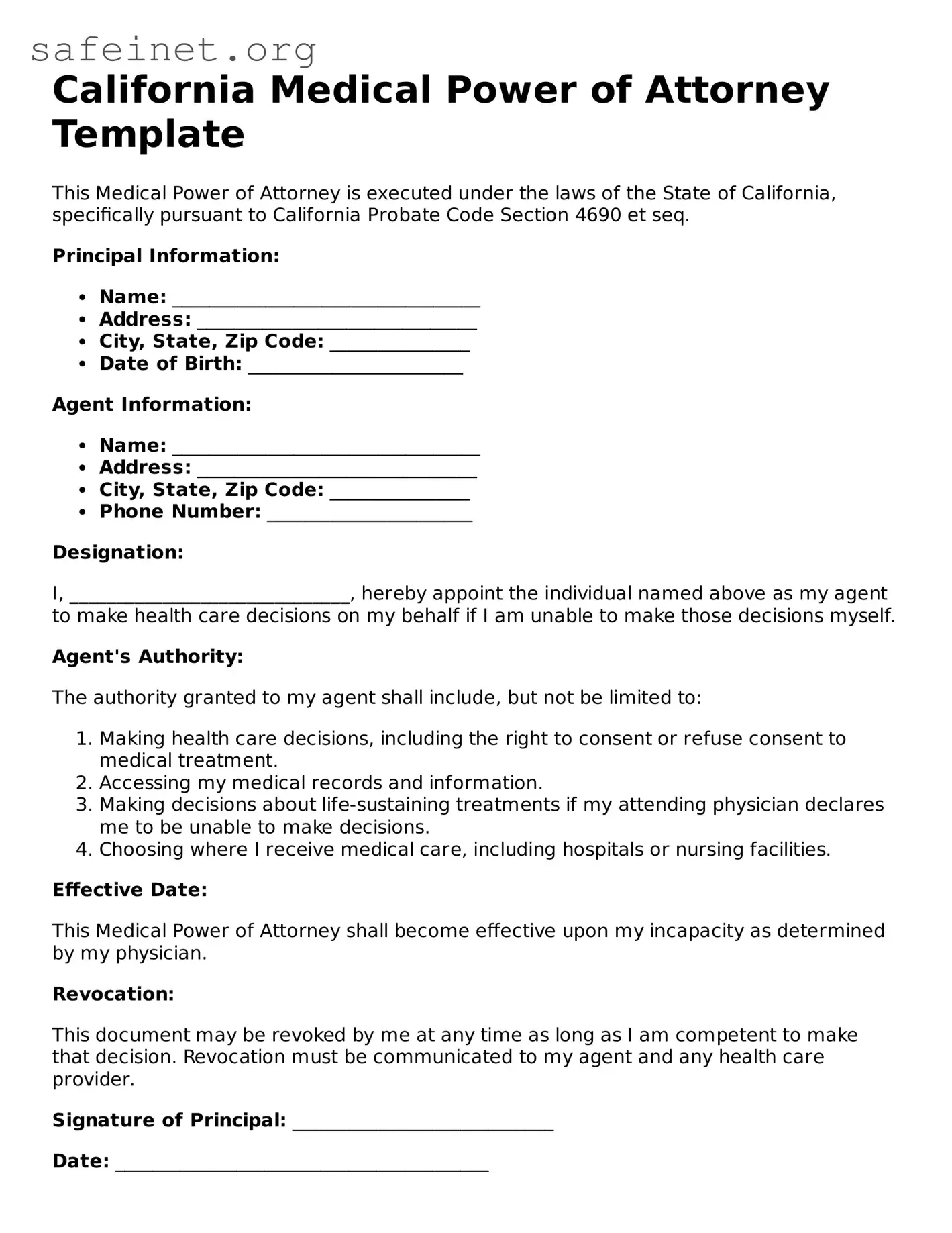What is a California Medical Power of Attorney?
A California Medical Power of Attorney is a legal document that allows an individual, referred to as the principal, to appoint another person, known as the agent, to make healthcare decisions on their behalf. This document becomes essential when the principal is unable to communicate their wishes due to illness, injury, or incapacity.
Who can be designated as an agent in a Medical Power of Attorney?
The principal can choose anyone to serve as their agent, as long as that person is at least 18 years old. Common choices include family members, friends, or trusted advisors. It’s advisable to select someone who understands the principal's values and wishes regarding medical care.
Are there any specific requirements to create a Medical Power of Attorney in California?
Yes, the form must be in writing and signed by the principal. Additionally, the signature must be witnessed by two individuals or notarized. Witnesses cannot be the appointed agent or anyone who stands to gain from the principal’s estate.
How does a Medical Power of Attorney differ from a Living Will?
A Medical Power of Attorney appoints an agent to make healthcare decisions, while a Living Will specifies the principal's wishes regarding medical treatments in the event of terminal illness or irreversible condition. Together, they provide a comprehensive approach to healthcare planning.
Can I revoke a Medical Power of Attorney once it is established?
Absolutely. The principal can revoke their Medical Power of Attorney at any time, providing they are competent to do so. This revocation must be made in writing, and it is advisable to notify the appointed agent and any healthcare providers to ensure clarity.
What if I do not have a Medical Power of Attorney but need someone to make decisions for me?
If you lack a Medical Power of Attorney and become incapacitated, healthcare providers may follow California’s default laws to select a decision-maker. Typically, the hierarchy includes a spouse, adult children, parents, and siblings. This can lead to delays and family disputes, making a designated agent preferable.
Can a Medical Power of Attorney be used for financial decisions?
No, a Medical Power of Attorney is strictly for healthcare decisions. If financial matters also need delegation, a separate Durable Power of Attorney must be established. This document designates an agent to handle financial transactions and decisions.
